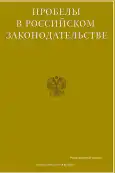On the Current Problems of the Spread of Information Extremism on the Internet
- Authors: Shogenov T.M.1
-
Affiliations:
- Krasnodar University of the Ministry of Internal Affairs of Russia
- Issue: Vol 16, No 5 (2023)
- Pages: 82-86
- Section: General theoretical, criminal-legal and other problems of Countering extremism and terrorism. Problems of preventing extremism and terrorism
- URL: https://journal-vniispk.ru/2072-3164/article/view/250127
- EDN: https://elibrary.ru/FXINZQ
- ID: 250127
Cite item
Abstract
The article discusses the features of information extremist activity, current trends in the spread of information extremism in the global information space, the increase in the influence of youth extremism, which is actively used by extremist organizations, in particular to have a destructive impact on the younger generation. It is noted that extremism is one of the sources of threats to the national security of the Russian Federation, which is confirmed by the tragic events of recent years. The main ways of spreading extremist ideology are analyzed, including through a virtual social environment, information technology methods that are used by extremists to have a devastating impact on the management systems of critical infrastructures of the state. Problematic issues, countering extremist activities on the Internet are noted.
At the present stage, the Internet space is actively used by extremist organizations to promote radical ideas, recruit new members, incite ethnic and religious intolerance, collect information about the alleged goals and objects of blackmail, psychological terrorism. We can say that information extremism in the global information space has become an alternative to traditional methods used by extremist organizations for many reasons.
In addition, in the current tense geopolitical situation, analysts predict an increase in the intensity of harmful impacts on critical infrastructure systems, as well as increased global competition and increased foreign attempts to create a negative image of Russia in the eyes of the world community.
For the study, a descriptive and comparative method, statistical and bibliometric methods were used.
The results of the study can be used to prepare scientific papers, conduct further research in this area and the practical application of the analysis in order to increase the effectiveness of countering the spread of information extremism on the Internet.
Full Text
##article.viewOnOriginalSite##About the authors
Timur M. Shogenov
Krasnodar University of the Ministry of Internal Affairs of Russia
Author for correspondence.
Email: tima0301977@mail.ru
SPIN-code: 6219-1069
Cand.Sci.(Econ.), Depauty head of the Department of Interior Bodies activities in special conditions, North Caucasus Institute for Advanced Studies (branch)
Russian Federation, Nalchik, KBRReferences
- Ministry of Justice of the Russian Federation. [Electronic resource]. – Access mode: https://minjust.gov.ru/ru/extremist-materials/?page=54& (date of access: 05/07/2023).
- On the Dark Side of the Internet: What is the Dark Web and the Deep Web?. [Electronic resource]. URL: https://www.dgl.ru/articles/na-temnoy-storone-interneta-chto-takoe-dark-web-i-deep-web_11677.html (date of access: 05/06/2023).
- Mozgovoy V.E. Information extremism in the context of socio-communicative transformations of Russian society / diss. for the degree of candidate of sociological sciences. - Krasnodar: KRU of the Ministry of Internal Affairs of Russia, 2015. [Electronic resource]. https://krdu.mvd.rf/upload/site119/document_file/ Va1XZ0YFIX.pdf (date of access: 07/15/2022).
- The court banned Facebook and Instagram in Russia for extremism. [Electronic resource]. – Access mode: https://ria.ru/20220321/instagram-1779307263.html (date of access: 05/07/2023).
- Twitter fined 3 million for posts with fascist symbols. [Electronic resource]. – Access mode: https://ren.tv/news/v-rossii/968914-twitter-oshtrafovali-na-3-mln-za-otsutstvie-blokirovki-ekstremistskogo-kontenta (date of access: 05/06/2023).
- How terrorists use social media to recruit. [Electronic resource]. URL: https://rb.ru/story/isis-uses-social-media/ (date of access: 05/05/2023).
- Yurchenko I.V. On some factors of the spread of the ideology of extremism in the political and information space 1 // Bulletin of the Adyghe State University. 2013. - No. 2. - P. 251-256.
- Buraeva L.A. On topical issues of suppressing the activities of radical communities that involve young people in committing terrorist crimes / T.M. Shogenov, L.A. Buraeva, A.N. Kuchmezov // Eurasian Law Journal. 2022. - No. 2 (165). - P. 448-450.
- Russia has declared a cyberwar because of a special operation in Ukraine. [Electronic resource]. – Access mode: https://lenta.ru/brief/2022/03/03/kibervoyna/ (date of access: 05/03/2023).
- Russian Foreign Ministry: Cyber attacks on Russia are carried out by 22 hacker groups, including those from the United States and Ukraine. Electronic resource]. – Access mode: https://iz.ru/1347462/2022-06-09/mid-soobshchil-o-22-vedushchikh-kiberataki-na-rf-gruppirovkakh (date of access: 05/03/2023).
Supplementary files








